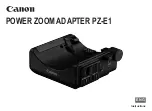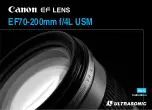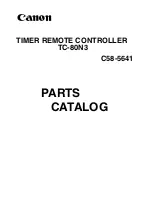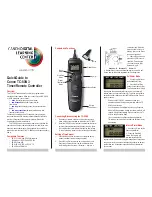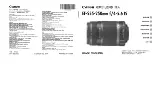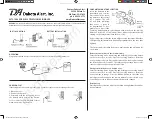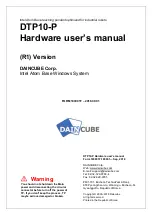
- 4 -
Giant-Binoviewer
T-2
spacer tube
T-2
Star Diagonal
Short C8
T-adapter for
every 2"
SC-thread
T-2
Quickchanger
Fig.6)
4. Visuelle Verwendung am Baader Großfeld-Binokular
Remove
Glasspath-corrector
AG II – without
spacer tubes
5.1 Stecken Sie den Telekompressor in voller Länge bis zum Anschlag in das C8 Blendrohr hinein.
5.2 Legen Sie den Kunststoffring ebenfalls in die Filternut. Das Teleskop sollte bei dieser Prozedur leicht nach unten
zeigen.
5.3. Schrauben Sie nun den kurzen T-Adapter mit der 2" Überwurfmutter fest.
5.4 Schließen Sie die KB Kamera mit Hilfe eines geeigneten T-Ringes am T-2 Gewinde des kurzen T-Adapters an.
Fig.7)
Short C8
T-Adapter
Plastic
Spacer Ring
Alan-Gee II
Standard configuration
(D)SLR-Camera
T-Ring
Einbau (photographisch):
Entfernen Sie alle Anbauteile vom rückwärtigen C8 Gewindeanschluß. Im Falle des
C11 / C14 verbleibt jedoch das Reduzierstück vom 3"- auf 2"-Gewinde am Fernrohr.
CCD-Kameras ST-4 und ST-5 mit Alan Gee Telekompressor II am C8
Konfiguration 1:
Anschluß der CCD-Kamera ohne Telekompressor direkt am Original (Celestron)
Okularstutzen.
Der Brennpunkt wird bei F eff = 1790mm erreicht, daraus ergibt sich (1790/203=) f: 8.8.
Konfiguration 2:
Der Alan Gee Telekompressor II wird komplett mit beiden Tuben unter Verwendung des Distanzrings in das Blendrohr eingeführt
und mit dem Okularstutzen fixiert.
Der Brennpunkt liegt jetzt bei F eff = 1210mm, daraus leitet sich ein Öffnungsverhältnis von 1210/203 = rd. f: 6.0 ab.
Konfiguration 3:
Der Alan Gee Telekompressor II (mit nur 1 St.Verlängerungstubus) wird mit dem 16mm T-Adapter im Blendrohr des Teleskops fi-
xiert. Am T-Adapter wird der Spiegelkasten mit der CCD-Kamera angebracht und zwar am besten mit der T-2 Schnellwechselvor-
richtung. Diese Konfiguration erleichtert die Arbeit mit der CCD-Kamera in mehrfacher Hinsicht, so daß sie nachdrücklich empfoh-
len wird.
Der Brennpunkt wird bei effektiv 1175mm erreicht, woraus sich “Blende” f: 5.8 errechnet.
6. Photographische Anwendung mit CCD-Kameras
4. Visual Use with the Baader Giant-Binoviewer
CCD-Cameras ST-4 and ST-5 with Alan Gee Telecompressor at the C8
Configuration #1:
Attach the CCD-camera without the telecompressor directly at the (Celestron) 1,25" visual back.
The focus is reached at F
eff
= 1790mm. This results in (1790/203)=
f: 8.8
.
Configuration #2:
The complete Alan Gee II telecompressor (with both extension tubes and the white spacer ring) is inserted into the
baffle and held in place by the visual back.
The focus is now at F
eff
= 1210, which delivers a focal ratio of 1210/203 = ca.
f: 6.0
.
Configuration #3:
The Alan Gee II telecompressor is equipped with only one spacer tube and mounted in the baffle with the 16mm-
T-adapter. Attach the CCD-camera at the T-adapter. We recommend our (#6) T-2 quick changer for this. It makes
several aspects of the work with a CCD-camera easier.
The focus is now at F
eff
= 1175, which results in a focal ratio of
f: 5.8
.
Remove
Glasspath-corrector
Giant binoviewer
Fig. 6)
Fig. 7)
AG II – without
spacer tubes
(D)SLR-Kamera
T-ring
Alan-Gee II
standard configuration
T-2
spacer tube
T-2
star diagonal
T-2
Quickchanger
Short C8
T-Adapter for
every 2"
SC-thread
Short C8
T-Adapter
Plastic
spacer ring
5. Photographic Use with a (D)SLR
Setup (potographical use):
Remove the visual back from the back of the C8/C925. In case of the C11/C14,
the reducer from 3" to 2" thread remains at the back of the telescope.
5.1
Insert the Alan Gee II into the baffle of the telescope until it stops.
5.2
Insert the white plastic spacer ring into the filter notch at the telescope‘s adapter thread.
5.3
Attach the short T-adapter with the 2"-coupling-ring at the telescope.
5.4
Attach your DSLR with a matching T-adapter to the T-thread of the short T-adapter.
6. Photographic Use with a CCD-Camera







